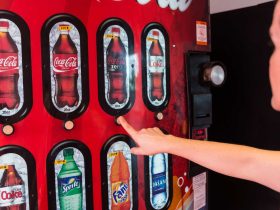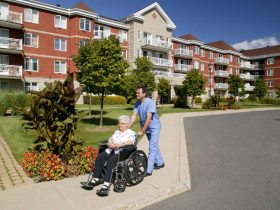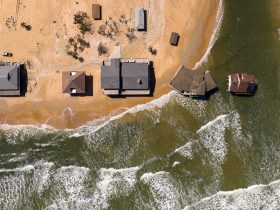KeyBanc downgraded Airbnb Inc.’s stock on Tuesday, saying leisure travel is expected to pull back after a strong recovery from the peak pandemic years, pressuring two key metrics for the vacation rental platform.
The downgrade sent the stock
ABNB,
down 4.6%.
Analysts led by Justin Patterson downgraded the stock to sector weight from overweight, or the equivalent of buy, and said they see elevated risk for room nights and experiences, or RNE, and average daily rates, or ADR.
“Airbnb has experienced a prolonged period of ADR strength, which we characterize as from delayed recoveries across regions and in urban markets,” the analysts wrote in a note to clients. “With consumer spend on services materially outpacing goods, we expect a reversion is more likely than not.”
KeyBanc is expecting Airbnb’s near-term earnings to fall short of Street expectations, starting in the fourth quarter where consensus estimates call for a roughly 11% decline in RNE from the third quarter, vs. pre-COVID norms of 12% to 13%.
“Further, restrictions in New York City — a popular New Year’s Eve destination — could accentuate quarter-on-quarter declines,” the analysts wrote, referring to the implementation of Local Law 18 on Sept. 5, which imposes severe restrictions on short-term rentals in the city.
The city no longer allows Airbnb hosts to rent homes unless the owner is present and no more than two guests are permitted at a time. Lawmakers have argued that the many short-term rentals available on the platform were fueling a housing shortage and contributing to a spike in rents. Airbnb has countered that the city is succumbing to pressure from lobbyists for the hotel industry and blocking visitors from accessing cheaper accommodation options.
For more, read: New York City embarks on strict Airbnb crackdown
“Net, we believe it is more likely that Airbnb posts decelerating RNE growth into year-end, which makes Street forecasts for 14% annual growth through 2025 too aggressive,” said the note.
KeyBanc said it believes Airbnb’s margins have peaked after material expansion in the last three years, and given new investment needs, it’s more likely they will be guided to flat to slightly lower in 2024 than guided higher.
See also: Airbnb’s biggest competitor now has a rewards program, but it’s nothing to write home about
The bank is reducing its 2023, 2024 and 2025 EBITDA (earnings before interest, taxes, depreciation and amortization) forecasts by 1%, 8% and 5%, respectively, to reflect more modest bookings growth.
Analysts say they now expect EBITDA of $3.5 billion for 2023, $3.8 billion for 2024 and $4.4 billion for 2025, equal to RNE growth of 14%, 13% and 12%, respectively.
“Based on our lower EBITDA forecast, we view fair value as $138,” said the note. Airbnb stock closed Monday at $136.56.
The downgrade could be proved wrong if Airbnb proves to be countercyclical and ADRs to be resilient; new services ramp faster than expected; or Airbnb takes more aggressive cost-cutting actions, the note said.
In its most recent earnings posted in early August, Airbnb offered strong third-quarter sales guidance that was ahead of consensus, saying people were seeking longer stays and bigger properties in higher-price areas amid an extended rebound in travel.
Many Americans, weary of pandemic restrictions on movement, flew to European cities this summer, boosting spending on tourism to the benefit of travel companies. But lingering inflation and higher fuel costs for airlines appears to have ended the trend. A number of airlines, including JetBlue Airways Corp.
JBLU,
have recently issued revenue warnings for their third quarter and cited a slump in demand along with jet fuel prices.
Read also: Airline stocks fall again, with Southwest and JetBlue shares at multiyear lows
The stock has gained 52% in the year to date, while the S&P 500
SPX
has gained 11%.
Read now: What to do if you get ghosted by a vacation rental host
Read the full article here













Leave a Reply